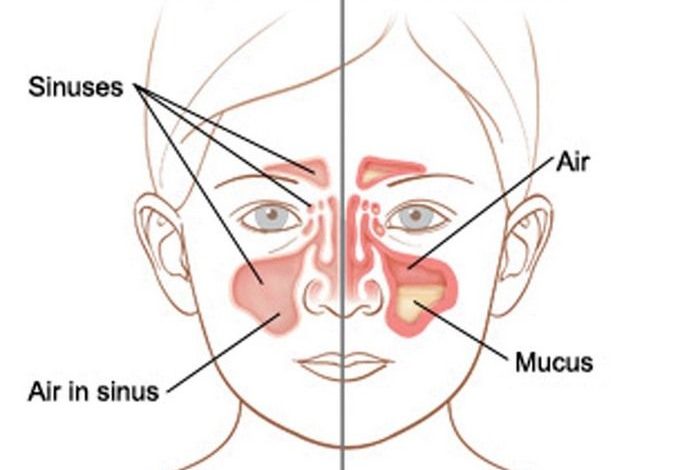



Your child has been having a stuffy nose for about a week and has been having greenish mucous from his nose but otherwise seems well. His coughing is worse at night and he vomits out greenish mucous.
Your little girl has been unwell for the past two weeks. She initially had what looked like a flu but recovered only to become sick again after a couple of days, with fever and yellowish nasal discharge.
Both the above scenarios are alarmingly familiar to most parents. In this article we tackle the symptoms of the common cold as well as its more dangerous companion “sinusitis”.
Most colds last for about five days. It usually starts with a running nose which is clear but turns yellowish after a day or two. Fever may also be present, during the first two days.


The symptoms of sinusitis are:
- Cold symptoms that last for more than a week or worsening of symptoms after an initial improvement.
- Thick yellow nasal discharge and a fever for at least three or four days in a row.
- Severe headache which is worse on bending over.
- Bad breath.
- In some cases a sinus infection can spread to the brain or eye. If your child exhibits any of the following, he or she needs urgent medical care:
- Redness and swelling around the eye
- Severe headache and or neck pain
- Vomiting which is persistent.
When your child sees a doctor, a thorough history and examination will usually lead to the diagnosis. In rare cases, CT scans may be required especially if there is fear that the infection has spread to the eye or brain. The doctor will need to also look for reasons which predispose the child to a sinus infections, including structural changes, allergies and problems with the immune system. The treatment for sinusitis is usually antibiotics and most children respond very well to antibiotic therapy. Nasal decongestant sprays or saline nasal sprays may also be prescribed for relief of stuffiness. The symptoms should begin to improve after the first few days of treatment.
Surgery is necessary only in a small group of children with sinusitis, usually done in the presence of complications. Most surgery is minimally invasive and done using an instrument called an endoscope. The ENT surgeon usually opens the natural drainage pathways of the child’s sinuses and makes the narrow passages wider.
In a nutshell, most of the time a cold is just a cold and will resolve with some supportive measures. However, sometimes a cold can progress into a more serious complication. Knowing what warning signs to look for will hopefully help parents seek help when they need it!
Rekha ENT Specialist Clinic Suite 509, Level 5, Pantai Hospital Ipoh. Tel: 05 540 5408. Facebook: www.facebook.com/RekhaENTClinic

